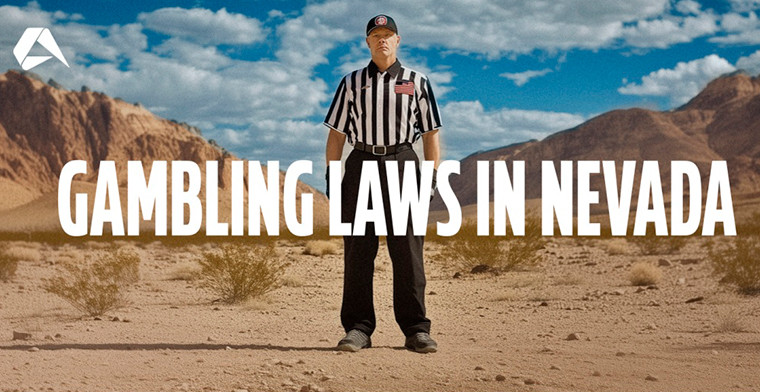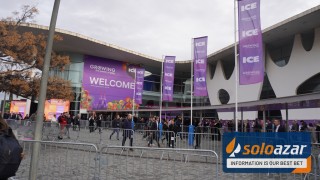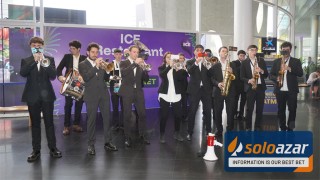Nevada Gambling Laws & Regulations: A guide for 2025, by Altenar
Thursday 03 de July 2025 / 12:00
2 minutos de lectura
(Douglas).- Nevada’s gambling industry is one of the most competitive and tightly regulated in the world. Altenar’s latest report explores licensing requirements, potential shifts in online gaming laws, and key strategies for operators looking to enter or expand in the market.

Nevada’s relationship with gambling is one of high stakes, both on and off the casino floor. The state’s gaming laws have shaped its economy and set precedents for gambling regulation across the United States.
A Gamble That Paid Off (1931)
At the height of the Great Depression, Nevada was desperate for economic relief. With mining revenues dwindling and jobs disappearing, the state legislature took the bold step of legalizing gambling in 1931. This wasn’t just a short-term fix but a calculated bet on Nevada’s future. In the years that followed, small gaming houses began to appear, catering to travelers and locals alike. What started as a lifeline for the economy soon became a defining industry.
Regulating the Wild West (1950s–1970s)
By the mid-20th century, Nevada’s gaming boom attracted high rollers and organized crime. In response, the state tightened control by establishing the Nevada Gaming Control Board (NGCB) in 1955 and the Nevada Gaming Commission (NGC) in 1959. These regulatory bodies were tasked with licensing operators, enforcing compliance, and ensuring the industry remained free from criminal influence. Their efforts established Nevada’s reputation as a legitimate and well-regulated gaming hub, drawing in major corporate investors and opening the door for large publicly-traded casino operators.
A Digital Frontier (2001–2013)
Nevada was among the first to explore online gambling legislation in the early years of the internet revolution. In 2001, the state passed laws allowing for regulated online gaming. However, it wasn’t until 2013 that Nevada made history by becoming the first US state to legalize online poker. This helped maintain the integrity of the game while protecting players. Despite this progress, Nevada remained hesitant to expand into online casino gaming, wary of undermining its thriving land-based casino sector.
A Unique Approach to Gambling (Present Day)
While states like New Jersey and Pennsylvania have embraced full-scale online gambling, Nevada has chosen a more selective approach. The state allows sports betting and online poker, but online casinos remain off-limits. The reasoning is simple: Las Vegas is the world’s gaming capital, and lawmakers are reluctant to introduce competition that could shift revenue away from its resort-driven economy.
Adding to Nevada’s firm stance, it remains one of the only US states without a state lottery. This decision dates back to its early legislative framework, which prioritized private-sector gaming over government-run gambling. This contrasts sharply with other states that rely on lotteries as a source of public funding.
The Legal Framework
From its world-renowned land-based casinos to its selective approach to online gaming, the state's legal framework sets a high benchmark for compliance. Understanding the regulatory environment of gambling activities within the state is essential for operators looking to establish a foothold in one of the world's most tightly-governed gaming jurisdictions.
Land-Based Gambling Regulations
Nevada’s land-based gambling industry operates under a regulatory framework that has become a model for jurisdictions globally. At its core are two key regulatory bodies: the Nevada Gaming Control Board (NGCB) and the Nevada Gaming Commission (NGC), working in unison to oversee licensing, compliance, and enforcement of gambling activities within the state.
The NGCB is the sector’s investigative and enforcement arm. It is responsible for conducting background checks on applicants, auditing financial records, and ensuring compliance with state and federal laws. No gambling license in Nevada is granted without the NGCB’s thorough scrutiny. The NGC, on the other hand, has the final say on licensing decisions, approving or denying applications based on its findings. Together, they form a two-tiered system that ensures operators meet the highest standards of financial integrity, operational transparency, and responsible gaming.
As you might imagine, securing a license is a rigorous process. Casinos, sportsbooks, and racebooks must demonstrate financial stability, submit detailed operational plans, and prove that key stakeholders meet suitability requirements. Regulation 5.011 of the Nevada Gaming Control Act sets strict eligibility criteria, and any failure to comply with financial or ethical standards can lead to license rejection or revocation.
Beyond licensing, AML compliance—like in all other regulated jurisdictions—is non-negotiable. Operators must implement risk-based anti-money laundering programs, adhering to the Bank Secrecy Act (BSA) and Nevada’s Regulation 6A, which mandates transaction monitoring, suspicious activity reporting, and stringent record-keeping. Regular audits ensure ongoing compliance, reinforcing Nevada’s reputation as one of the world’s most tightly-regulated gambling jurisdictions.
Online Gambling in Nevada
The US state of Nevada permits online poker and mobile sports betting while restricting full-scale online casino gaming. Operators seeking entry into the digital market face a regulatory framework different from land-based gambling.
Online Poker and Mobile Sports Betting
Nevada has allowed online poker since 2013, making it the first US state to legalize and regulate the activity. Platforms must obtain an Interactive Gaming License from the Nevada Gaming Commission (NGC) and the Nevada Gaming Control Board (NGCB) to operate. Compliance requirements include geolocation restrictions, ensuring that only players physically located within state borders can participate.
This US state also contributes to the Multi-State Internet Gaming Agreement (MSIGA), which allows online poker operators to share player pools with other states. However, this agreement is limited to poker and does not provide for broader iGaming expansion.
Sports betting, both retail and mobile, is also legal. But unlike most other states, mobile sportsbooks must be tied to a licensed land-based casino. Players must register in person before wagering online—an extra regulatory step aimed at maintaining control over digital operations.
Online Casinos
Despite being a global gaming hub, Nevada has not legalized online casino games in order to protect land-based casino revenues. This is particularly true of Las Vegas, where resorts rely on in-person gaming, hospitality, and entertainment spending. While some legislators have proposed expanding digital offerings, online casino gaming remains off the table—for now at least.
Categoría:Reports
Tags: Altenar,
País: Isle of Man
Región: EMEA
Event
ICE Barcelona 2026
19 de January 2026
R. Franco Digital reinforced its technological leadership at ICE Barcelona 2026 with IRIS Open Omnichannel Platform
(Madrid).- The Spanish iGaming provider advances its omnichannel strategy, highlights regulatory readiness, and showcases new casino titles at the industry’s leading event.
Friday 30 Jan 2026 / 12:00
“The 2026 World Cup Is Forcing a Rethink of How Betting Brands Advertise”- Rodrigo Cambiaghi, Sportradar
(Barcelona, SoloAzar Exclusive).- During ICE Barcelona 2026, where industry leaders gathered to discuss the future of gaming and sports betting, Rodrigo Cambiaghi, Senior Sales Executive for Digital Advertising at Sportradar, shared his perspective on how the 2026 FIFA World Cup is reshaping advertising strategies. In this interview, he explains why real-time data, automation and regulatory alignment are replacing mass exposure, and how major tournaments are accelerating a shift toward more precise, accountable and performance-driven sports advertising.
Friday 30 Jan 2026 / 12:00
Amusnet Marks a Decade of Growth with a High-Impact Presence at ICE Barcelona 2026
(Sofia).- The company combined a landmark anniversary celebration with product innovation, strategic partnerships, and strong business momentum at the industry’s leading event.
Friday 30 Jan 2026 / 12:00
SUSCRIBIRSE
Para suscribirse a nuestro newsletter, complete sus datos
Reciba todo el contenido más reciente en su correo electrónico varias veces al mes.



















